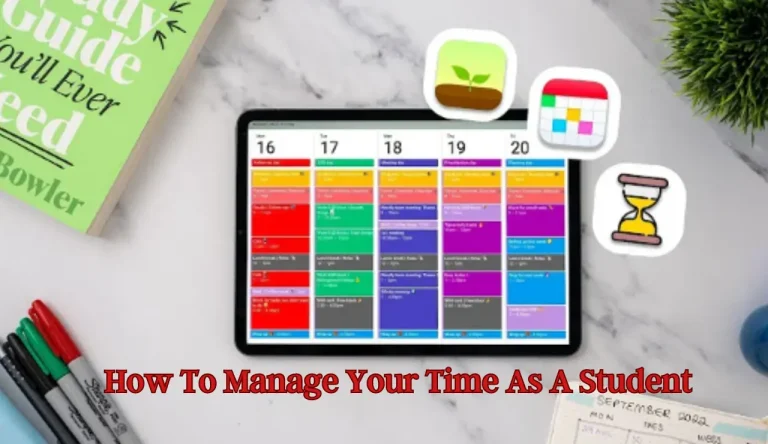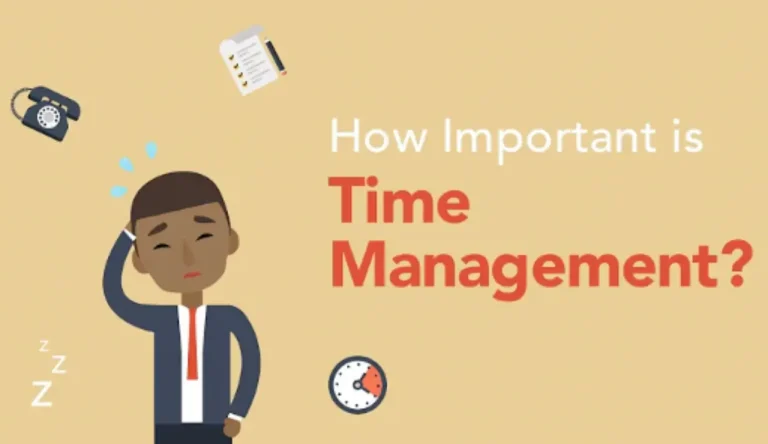How To Become A Time Management Coach
Becoming a time management coach is not only about helping others improve their productivity but also about empowering them to live more balanced and fulfilling lives.
In this article, we will guide you through the steps on how to become a time management coach. From assessing your own skills to building your coaching practice, we will provide you with valuable insights and practical tips to help you embark on this exciting journey.
So, if you’re ready to take your passion for effective time management to the next level and make a positive impact in people’s lives, let’s dive in and discover how you can become a skilled and sought-after time management coach.
Key Takeaways
- Assess your own time management skills and identify areas for improvement
- Gain knowledge and expertise in time management strategies for students by researching different approaches and techniques, attending workshops or seminars
- Develop coaching skills, improve communication and leadership abilities to guide and support others in their time management journey
- Build a coaching practice by defining your niche and target market, creating a compelling website, utilizing social media and networking, and offering free webinars or workshops to provide value and support to clients.
Assess Your Own Time Management Skills
Assess your own time management skills to identify areas for improvement and focus on becoming an effective time management coach. Start by evaluating your strengths and weaknesses in managing your own time.
Are you able to prioritize tasks effectively? Do you tend to procrastinate or get easily distracted? Take a close look at how you allocate your time throughout the day and identify any patterns or habits that may be hindering your productivity.
Reflect on how well you adhere to deadlines and whether you have a clear understanding of your goals and objectives. By recognizing areas where improvement is needed, you can develop strategies to overcome these challenges and enhance your own time management skills.
This self-awareness will not only benefit you as a coach but also enable you to better understand and assist others in their journey towards effective time management.
Gain Knowledge and Expertise in Time Management Strategies
Explore various effective strategies for maximizing efficiency and achieving your goals, acquiring the knowledge and expertise needed to guide others on their path to success.
As a time management coach, it’s crucial to have a deep understanding of time management techniques and effective planning. Start by researching different approaches such as the Pomodoro Technique, Eisenhower Matrix, and SMART goals. These methods can help individuals prioritize tasks, eliminate distractions, and work more efficiently.
Additionally, consider attending workshops or seminars focused on time management to gain further insight from experts in the field. Implement these strategies in your own life and track your progress to develop a personal understanding of how they work.
By becoming well-versed in various time management techniques and honing your own skills, you’ll be equipped to effectively guide others towards improved productivity and success.
Develop Coaching Skills
Hone your ability to guide and support others by developing strong coaching skills. As a time management coach, it’s crucial to improve your communication and enhance your leadership skills.

Effective communication is the key to understanding your clients’ needs and helping them navigate through their time-related challenges. By actively listening and asking powerful questions, you can uncover underlying issues and provide valuable insights.
Additionally, enhancing your leadership skills will enable you to inspire and motivate your clients towards better time management habits. Leading by example, setting realistic goals, and providing accountability are essential aspects of coaching that can greatly benefit your clients in their journey towards effective time management.
Remember, as a coach, you have the power to transform lives by empowering individuals with the necessary tools to maximize their productivity and achieve their goals.
Define Your Niche and Target Market
To truly excel in your coaching career, it’s essential to pinpoint a specific area of expertise and identify the ideal audience you want to serve. Identifying your target market and finding your niche will help you stand out from other coaches and attract clients who are specifically looking for the skills and knowledge you possess.
Start by considering what type of people can benefit the most from time management coaching. Is it busy professionals, entrepreneurs, or students? Once you have identified your target market, delve deeper into their needs and challenges related to time management. This will help you define your niche – a specialized area within time management coaching that sets you apart.
By understanding your target market’s pain points and offering tailored solutions, you can establish yourself as an expert in this specific field and attract clients who are seeking exactly what you have to offer.
Build Your Coaching Practice
Developing your coaching practice is all about building a strong foundation, attracting clients, and establishing yourself as an authority in your field. To achieve business growth, it’s important to implement effective marketing strategies that will help you reach your target market.
Start by creating a compelling website that showcases your expertise and offers valuable resources for potential clients. Utilize social media platforms to engage with your audience and share relevant content on time management tips and techniques.
Networking is also crucial; attend industry events, join professional organizations, and collaborate with other coaches or experts in related fields to expand your reach.
Additionally, consider offering free webinars or workshops to demonstrate your coaching skills and provide value to potential clients. Ask satisfied clients for testimonials that can be featured on your website or used in promotional materials.
Lastly, don’t underestimate the power of word-of-mouth referrals – consistently deliver exceptional results for your clients, and they will become advocates for your services. By implementing these strategies, you’ll be well on your way to building a thriving coaching practice focused on helping others master their time management skills.
Provide Value and Support to Your Clients
When it comes to providing value and support to your clients as a time management coach, there are two key points you need to focus on: developing personalized time management plans and offering accountability and motivation.
By creating customized plans tailored to each client’s unique needs and goals, you can help them effectively manage their time and increase productivity.
Additionally, by holding them accountable for their actions and providing constant motivation, you can ensure they stay on track towards achieving their desired outcomes.
Develop Personalized Time Management Plans
Maximize your productivity and achieve your goals by creating personalized time management plans that fit your unique needs. As a time management coach, I understand the importance of taking a personalized approach to help you effectively manage your time. By tailoring strategies specifically for you, we can identify the most effective techniques that align with your work style and preferences.

Here are three key elements to include in developing personalized time management plans:
- Assessing Your Priorities: We’ll work together to determine what truly matters to you and align your tasks accordingly. This ensures that your time is focused on activities that contribute the most value to your personal and professional life.
- Creating Realistic Schedules: I’ll guide you in setting achievable goals and breaking them down into manageable tasks. This enables you to create realistic schedules that account for necessary breaks, flexibility, and potential obstacles.
- Implementing Effective Strategies: With my expertise, I’ll introduce you to proven techniques such as prioritization methods, batch processing, and delegation. These strategies will empower you to make the most of every minute while maintaining a healthy work-life balance.
By developing personalized time management plans tailored specifically for you, we can unlock your full potential and help you achieve long-term success.
Offer Accountability and Motivation
Offering accountability and motivation is like having a personal cheerleader who keeps you on track and inspires you to conquer your goals. As a time management coach, your role is not only to guide individuals in developing personalized time management plans, but also to hold them accountable for their progress.
You can do this by tracking their progress regularly and providing constructive feedback. By setting realistic goals together, you help clients stay focused and motivated throughout their journey towards better time management. Accountability ensures that they remain committed to implementing the strategies discussed during coaching sessions. Moreover, it helps them overcome obstacles and adapt their approach whenever necessary.
Motivation plays a crucial role in sustaining momentum and encouraging clients to push beyond their comfort zones. By offering accountability and motivation, you empower individuals to take charge of their time effectively and achieve the desired results.
Continuously Learn and Grow as a Time Management Coach
To truly excel as a time management coach, it’s essential to keep growing and learning, always pushing yourself to be the best you can be. Continuous improvement and professional development are key aspects of being an effective coach in this field. As a time management coach, you must stay updated on the latest strategies, tools, and techniques that can help your clients manage their time more effectively.
One way to continuously learn and grow as a time management coach is by attending workshops, seminars, or conferences focused on time management. These events provide opportunities to learn from experts in the field and gain valuable insights into new approaches or technologies that can enhance your coaching practice.
Another important aspect of continuous learning is networking with other coaches or professionals in related fields. Engaging in discussions, sharing experiences, and exchanging ideas can broaden your perspective and expose you to different viewpoints.
Moreover, reading books or articles written by renowned authors or industry leaders can deepen your knowledge base and inspire new ways of thinking about time management.
By embracing continuous improvement and investing in your own professional development, you will not only enhance your coaching skills but also provide greater value to your clients as a trusted advisor on effective time management techniques.
| Benefits of Continuous Learning | Ways to Continuously Learn |
|---|---|
| 1. Stay updated on latest strategies | Attend workshops/seminars/conferences |
| 2. Gain new insights & approaches | Network with other coaches/professionals |
| 3. Broaden perspective & exchange ideas | Read books/articles by industry leaders |
Frequently Asked Questions
Conclusion
Congratulations on completing this article on how to become a time management coach! By following the steps outlined, you’re well on your way to becoming an experienced and knowledgeable professional in this field.
Did you know that according to a study conducted by the American Psychological Association, only 17% of people believe they manage their time effectively? This statistic truly highlights the importance and demand for time management coaching.
Remember to continuously learn and grow as a coach, and always provide value and support to your clients. Good luck on your journey to becoming a successful time management coach!






